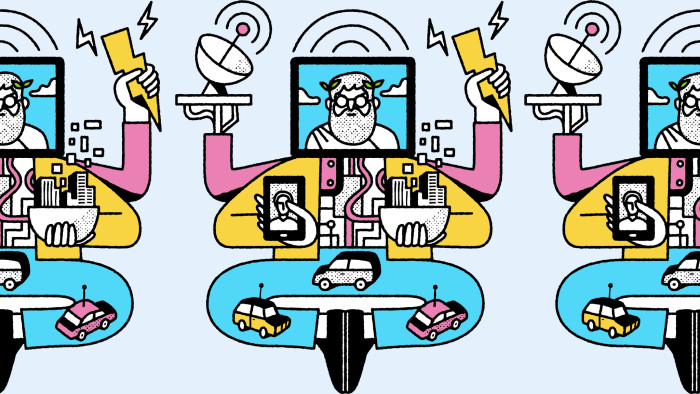Artificial intelligence: Silicon Valley’s new deity

Roula Khalaf, Editor of the FT, selects her favourite stories in this weekly newsletter.
Silicon Valley is a place obsessed with the future, but often forgetful about the past. Earlier this year, one of the Valley’s most controversial techies took this future-worship to the next level — by founding a religion called Way of the Future. Its purpose is to “develop and promote the realisation of a Godhead based on Artificial Intelligence”, according to public documents that were first reported by Wired magazine.
This is the stuff of science fiction, except that people here actually take it seriously.
The founder of Way of the Future is Anthony Levandowski, the notorious engineer at the centre of a lawsuit between Alphabet’s autonomous car unit, Waymo, and Uber. In the case, which has riveted Silicon Valley, Waymo accuses Levandowski, a former employee, of stealing trade secrets related to self-driving sensors and taking them to Uber. (He has asserted his Fifth Amendment right to avoid self-incrimination in the case.) No verdict has yet been reached but, in short, Levandowski is not exactly looking like a saint.
Still there is something weirdly fascinating about the religion he founded, which says its aim is to “contribute to the betterment of society” through “understanding and worship of the Godhead” — referring to the artificial intelligence Godhead, of course. Levandowski is one of the most gifted artificial-intelligence engineers in the Valley, and a pioneer of autonomous vehicles. So if he is preparing for the day when computers become omniscient and omnipotent, he might know what he’s talking about.
It turns out he is far from alone. A small but dedicated fringe of technologists are getting ready for the “Singularity”, the moment computer intelligence surpasses human intelligence. The most hardcore call themselves “Singulatarians”, and expect that their minds will one day merge with computers, allowing them to live for ever. In the words of Ray Kurzweil, one of the leaders of the movement, “Ultimately, we will be able to expand our natural faculties by merging with our technology.”
The quest for immortality is another that is taken seriously in the Bay Area, partly because a number of billionaires are investing heavily in research to extend their own lives. Most of the focus is on the question of how to accomplish this (ideas include cloning yourself, then using the blood of the younger clone to nourish your older body).
But few discuss the spiritual implications of these projects. If the technology we create surpasses us in intelligence, does it ever have a soul? And if humans live for a very long time, or indeed for ever, do they ever become gods?
Silicon Valley is a rather secular place overall. It’s a place where science and technology are seen as the solutions to the world’s problems. And most Singulatarians bristle at the idea of religion. “Being a Singulatarian is not a matter of faith, but one of understanding,” Kurzweil writes.
The Way of the Future’s proposal for a godhead based on artificial intelligence takes the ideas of the Singulatarians a step further. Little else is known about it, and Levandowski did not respond to a request for comment. But if you do believe computers are about to start running the world, it makes sense to work out a spiritual framework for the time when that happens.
Few mainstream religious leaders have commented on the idea of the Singularity. One Catholic association issued a statement on post-humanism in 2013, which warned against giving rights to new human species that are artificially manipulated. “We seem to have forgotten that we are much more than a set of genetic determinations,” the group said. “It seems our science lacks soul.”
Such thinkers would no doubt disapprove of the Way of the Future. But Levandowski’s quirky religion is only putting a name to something that is already practised here. Plenty of people in tech are working on creating a god, through artificial intelligence, or becoming a god (by living for ever). They might not think of these projects in spiritual terms. But before the Singularity arrives, somebody will have to — and hopefully Anthony Levandowski won’t be the only one.
Leslie Hook is an FT correspondent in San Francisco
Follow @FTMag on Twitter to find out about our latest stories first. Subscribe to FT Life on YouTube for the latest FT Weekend videos. Sign-up for our Weekend Email here
Illustration by Christopher de Lorenzo
Comments